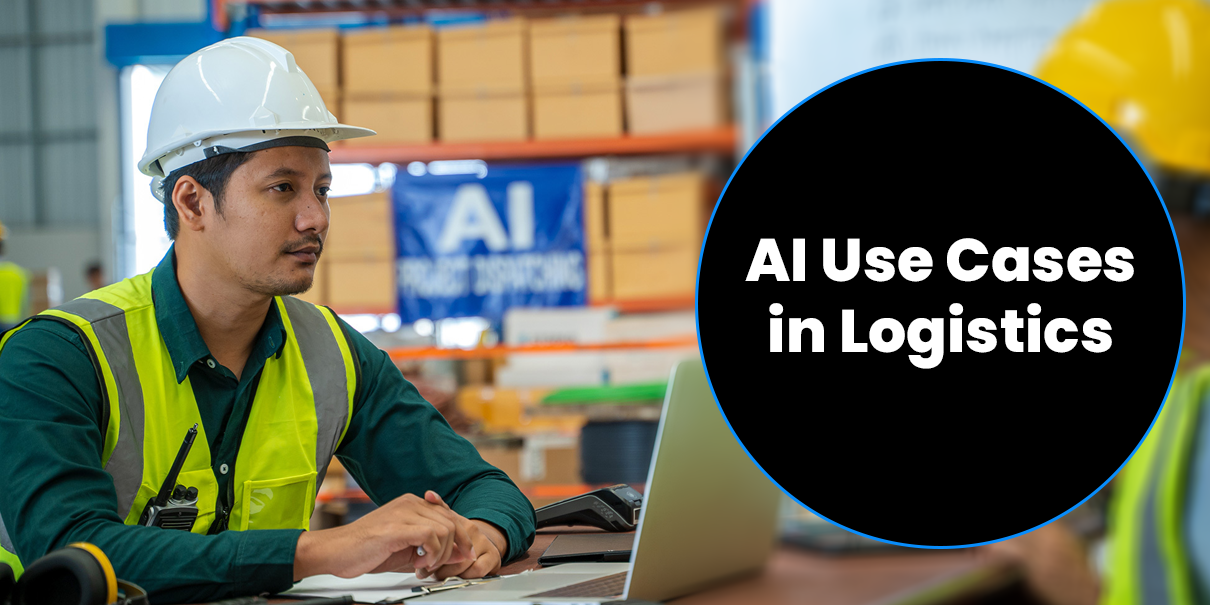Logistics is an exceptionally data-reliant field, and processing all of this data represents a massive cost in time, money, and labor. As a result, utilizing software to automate business processes creates exceptional value. Luckily, machine learning and AI offer countless opportunities for the automation and customization of logistics processes and workflows, and we at 7T have provided results to prove it.
From document digitization, to route planning, and regulatory compliance, AI automation creates value at nearly every step of logistics workflows. To help businesses understand exactly how to maximize the value of AI use cases in logistics, we will cover all of the following:
- AI Use Cases in Logistics
- Benefits of AI in Logistics
- The Best AI Implementation Strategy
Let’s dive into each to discover how best to implement AI into logistics workflows.
AI Use Cases in Logistics
Due to the logistics industry’s heavy reliance on data for bookkeeping, route planning, regulatory compliance, and other functions, the use cases for ML and AI are plentiful. In our experience, the following use cases are the most common for companies within the supply chain:
AI Use Cases in Logistics
| Use Case | Description |
|---|---|
| AI Data Capture Tools | AI data platforms offer automated data entry, organization, and report generation. These tools make data capture faster, more accurate, and more cost-effective. |
| Inventory Tracing Tools | AI help simplify tracking as inventory passes through the supply chain by automatically checking data from multiple warehouses and shipping manifests to provide real-time insight into inventory locations. They can also use historical data to determine more accurate arrival times. |
| Compliance Automation Tools | After entering regulatory information from relevant localities into machine learning-powered tools, they can connect with tracking solutions to ensure transporters have access to all the required information and paperwork without the need to request it or fill it out manually. |
| AP, AR, and Contract Generation | Automatically generates the necessary contracts and documents for accounts payable and receivable departments. |
| Omnichannel Applications | Modern software apps can be created to integrate business processes across multiple channels and end-user devices, including computer hardware, smartphones, computers, and tablets. |
The combination of all of these use cases revolutionizes logistics companies’ back-end operations. Extensive cost savings and increased organizational efficiency allow management to focus less on micromanaging various business processes and more time on optimizing operations even further. This not only improves logistics companies’ bottom lines but also benefits every business that relies on a robust and efficient supply chain.
Benefits of AI in Logistics
To give business leaders better insight into exactly how they can benefit from all the above AI use cases, the below table breaks down all of the most common benefits our clients report after we assist them in implementing AI into their logistics operations:
| Benefit | Description |
|---|---|
| Faster and More Accurate Data Entry | Logistics companies enjoy labor costs and improve the accuracy and speed of data entry processes by using AI tools to automate data capture from scanned documents. |
| Consistent Regulatory Compliance | Transport companies, especially those that operate internationally, leverage AI tools to automate regulation compliance as cargo moves to ensure that compliance structures adapt to the varied regulations at every checkpoint. |
| Improved Supply Chain Traceability | One of the most important assets for supply chains is the ability to track inventory as it leaves its origin point, travels along its route, and arrives at its destination. |
| Rapid Document Generation | Automated document generation can accelerate loading and unloading processes by reducing the administrative workload required to ship goods. |
| Comprehensive Contract Management | Many firms value the ability to automate contract management processes to ensure they are charged accurately and that their agreements are always met with compliance. |
| Omnichannel Business Processes | Digital transformation allows businesses to operate across multiple channels, and desktop and mobile app integration allows workers to integrate business processes if they are provided access to a work phone or a computer. |
Overall, AI implementation offers transformative value for logistics companies by modernizing their operations. So many firms across the supply chain operate on outdated technology simply because it’s what they’ve been using for a long time, and the downtime required for them to find and adopt a new platform feels like too cumbersome a hit to take.
This is why finding the proper implementation process is key to realizing all of these benefits without losing out on income through the onboarding process.
The Best AI Implementation Strategy
Finding the best logistics AI implementation strategy takes time, as it involves evaluating all available software providers, developers, or consultants that specialize in the type of tool you need. To make it simpler and faster, we’ll break down the general categories of software options:
- Out-of-the-Box AI Software
- Custom AI Software
We recommend hiring a Custom Developer to help you implementAI use cases in logistics, because it provides all possible benefits while creating a custom onboarding process that is tailored to your existing workflows.
Out-of-the-Box AI Software
| Pros | Cons |
|---|---|
| ✔ Cheap | ✘ Generic and limited feature sets |
| ✔ Easy to train staff | ✘ Have to accommodate multiple timelines |
| ✔ Relatively bug-free | ✘ Expensive to add features |
Out-of-the-Box (OOTB) software is the cheapest option, but also the most rudimentary. While it offers an affordable entry point into AI automation, developers of these softwares don’t tailor the tool specifically to your company’s workflow, which means you’ll likely need to purchase multiple OOTB tools to get all of the functionality you need. Their onboarding process is similarly generalized, forcing companies to take downtime to train staff on the new tool, taking time from their workday with the current software stack.
This shifts all of the responsibility onto the logistics company leadership to find tools that are similar enough to minimize downtime but comprehensive enough to add sufficient value to justify an investment. All of this presents a massive headache, which is why many companies simply choose not to modernize in the first place.
Custom AI Software
| Pros | Cons |
|---|---|
| ✔ Custom-tailored solutions | ✘ More expensive than OOTB software devs |
| ✔ Top-tier development talent | ✘ Development staff aren’t in-house |
| ✔ Accessible training and support | |
| ✔ Full onboarding assistance |
Custom AI software developers create bespoke solutions that are made for each individual client. This means that the platform will not only provide all the functionality that a logistics company is looking for when they hit the market for AI software, but they can also make is operate similarly to an existing software stack, even keeping certain parts of the stack in tact if companies are happy with some of the legacy tools they’ve used.
While more expensive up-front, custom software development actually provides a solid long-term value proposition by eliminating the need for perpetual licensing fees associated with OOTB software. This is especially true for logistics firms looking to maximize the value of AI, as this will likely require the use of multiple OOTB tools, which means multiple licensing fees are being paid out in perpetuity.
Custom software is bought by the client, meaning they don’t have to pay any fees for ongoing use, and the value of the new IP is added to their company’s value. This makes custom software development more cost-effective in the long-term for firms with more complex needs.
Implement AI in Logistics With 7T
At 7T, we use a problem → solution approach to create AI/ML solutions for our clients across countless supply chain-related industries. Through our custom-built platforms, machine learning and AI technology can provide significant operational advantages with a robust ROI. Our team will audit your organization’s challenges, often by showing up on-location for a time to embed ourselves within your business and understand your needs from a first-person perspective. Then, we’ll architect a value-generating solution to transform your vital processes and meet your goals.
7T is based in Dallas, Houston, and Charlotte, NC, but our clientele spans the globe. If you’re ready to learn more about ML and AI use cases in logistics, contact 7T today.









